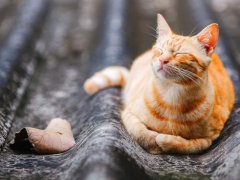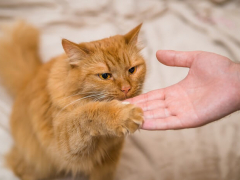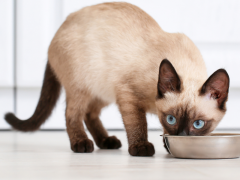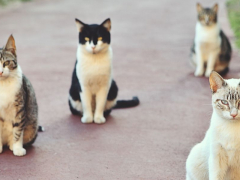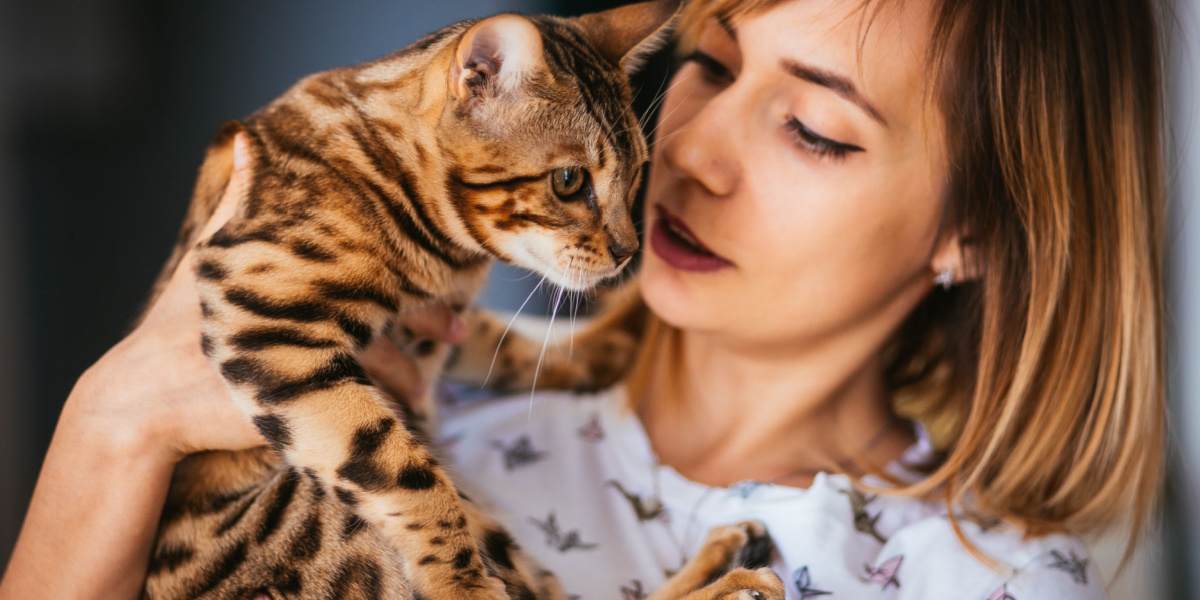
If you are thinking about getting a cat for the first time, or perhaps you are already a cat owner but you’re about to undergo a major life change such as a new job or baby, you might find yourself wondering, how much attention do cats really need?
All cats need dedicated daily time for attention and to meet their other needs (providing food and water, cleaning the litter tray, etc.).
Life stage, breed, health status, and personality all affect the amount of attention your cat needs.
Not meeting your cat's needs for attention can lead to behavioral problems, but if you know you will have less time for your cat due to a significant life change (a new job or baby, for example), there are steps you can take to help.Key Takeaways
Read on to learn what impacts an individual cat’s attention needs, how to tell if your cat craves more attention, and what might happen if your cat isn’t getting the attention they need.
How Much Attention Does A Cat Require?
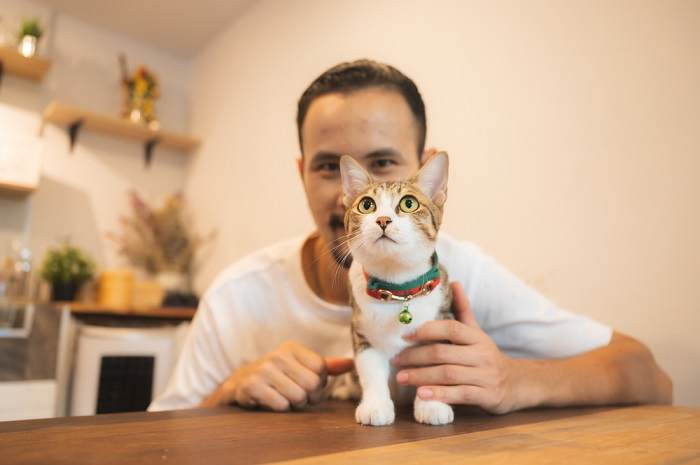
Different cats need different levels of attention from their owners.
Although cats are generally relatively low-maintenance pets, how much attention an individual cat needs to be happy and healthy depends on several different factors, including the following.
1. Life Stage
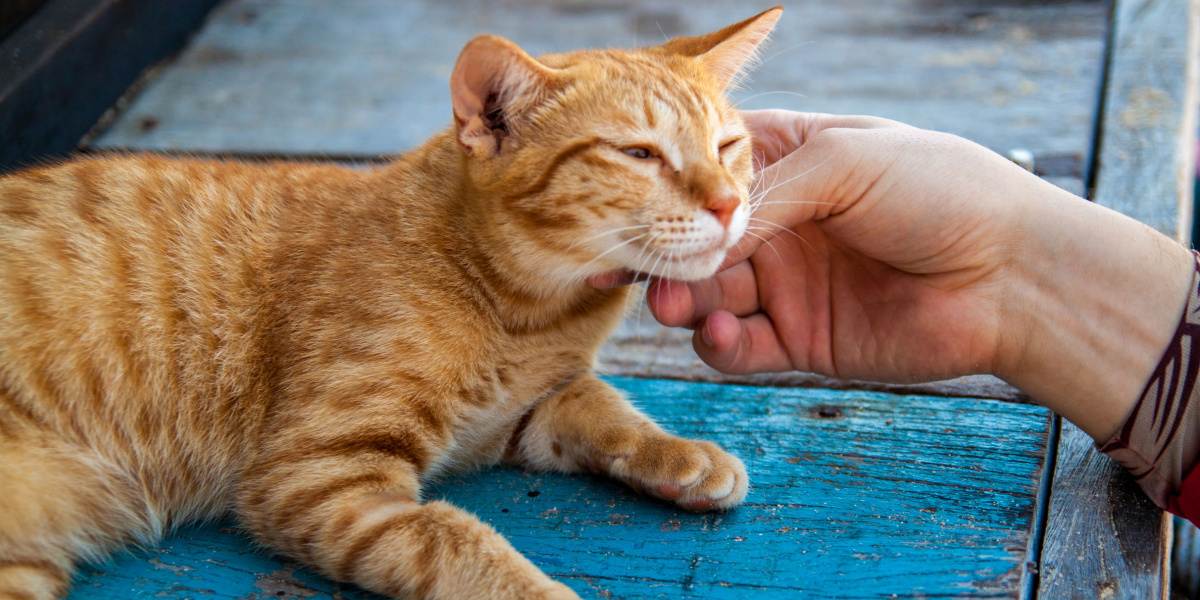
Kittens generally need more attention than cats of any other age.
- Kittens
Kittens bring the cute factor, but they are very high maintenance and require a lot of care and attention. Young cats have a tremendous amount of energy requiring lots of playtime, and need physical contact to meet their emotional needs, too. Getting a kitten might not suit you if you know you have limited time.
- Adult Cats
Adult cats tend to be the lowest maintenance life stage. However, the amount of attention a cat requires will still be very dependent on their individual needs. Every adult cat will need some dedicated time for daily engagement, so if you are away for days on end with work or play, a cat might not be the right fit for your lifestyle.
- Senior Cats
Typically, older cats need much more attention than adult cats. This is because, like with humans, as cats age, their health tends to deteriorate. Therefore, they need a little more time daily for medication or help to groom. Senior cats also require more regular trips to the veterinarian for wellness checks.
Also Read: The Complete Feeding Guide From Kittens To Seniors
2. Breed
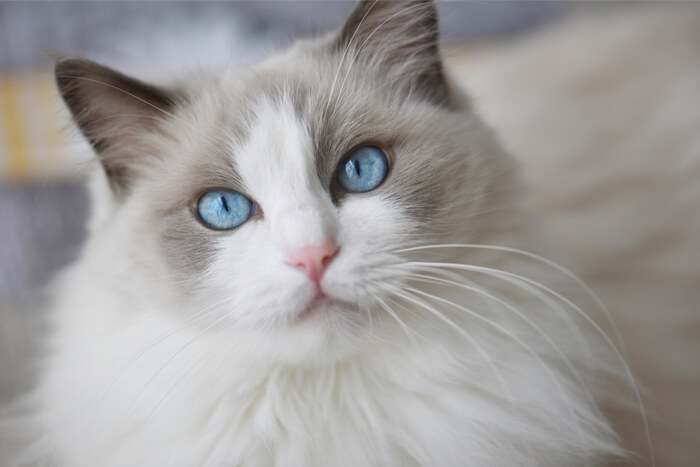
Some breeds are more personable and need more attention from their humans.
Some breeds need more attention than others. Fundamentally, the amount of attention a cat needs will be very much based on that individual cat’s personality (see below) regardless of the breed, but there are some breed factors to consider.
- Fur Length
Depending on fur length, the amount of attention a cat needs can vary. Cats with short fur typically can keep themselves tidy by grooming themselves. If a shorthaired cat has an unkempt coat, it can be a sign of a medical issue. Cats with longer hair can be prone to hairballs and matting, requiring more regular grooming sessions. Even hairless cats, like the Sphynx, require a little more attention to manage potential skin issues and even prevent sunburn.
- Pedigree Breeds
Some pedigree breeds are more well-known for their attention-seeking ways. These include the Siamese, which generally have big and very chatty personalities.
Other pedigree breeds needing more attention include those with flat faces (brachycephalic breeds) who require their eyes cleaned and have increased health risks. Also, those with short legs (chrondrodyplastic breeds, such as the Scottish Fold), are more prone to joint conditions.
Also Read: The Top 10 Cutest Cat Breeds in the World
4. Personality
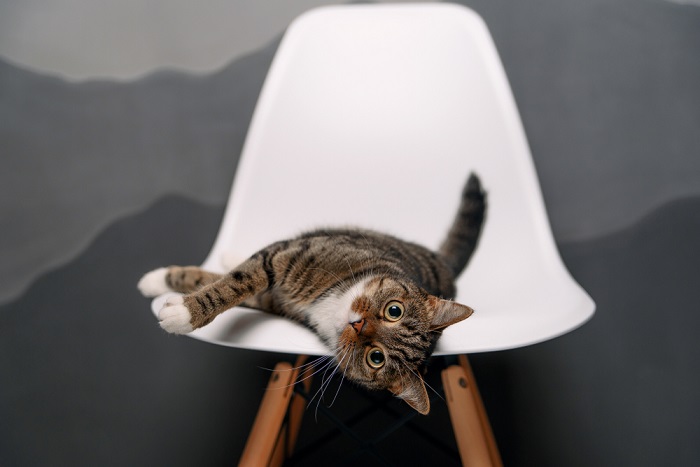
Some cats prefer being the only cat in the house, but others enjoy the company a feline companion.
All cat owners know every cat is an individual. A cat’s life history and personality will hugely impact how much attention and companionship they need. For example, a semi-feral barn cat will be more than happy being outdoors, with limited human contact providing you keep down some food, whereas an indoor-only kitten will need much more attention.
Some cats will happily live alone and even be unhappy with another cat’s presence, while others prefer a feline companion rather than their human for attention.
If you are adopting a cat from a shelter, speak closely to the staff and be honest about your lifestyle. This way, they can pair you with a cat that will fit in well, making for a happier cat and owner! Cat ownership isn’t for everyone. Try not to be disheartened if shelter staff tell you that a cat might not fit in with your lifestyle and instead explore lower-maintenance pets.
Also Read: 10 Signs Your Cat Really Does Trust You
5. Health Problems
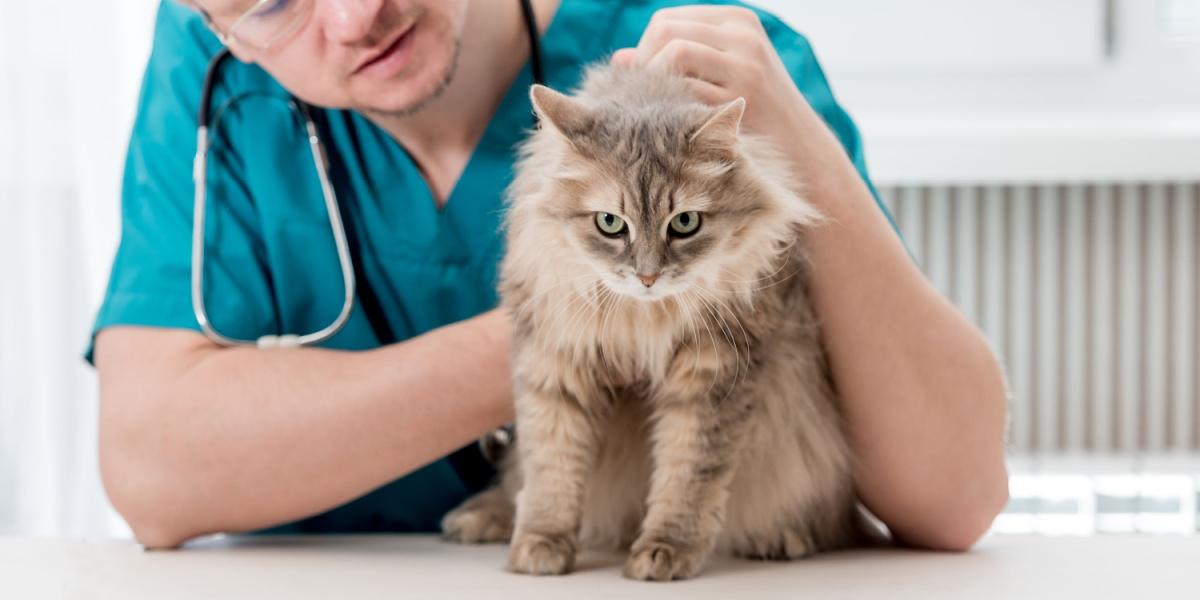
A cat with a health condition like diabetes requires more attention.
If you are taking on a new cat, knowing their medical history is very important, as health issues hugely impact the amount of attention needed. Cats can develop many medical conditions, some of which require very intensive management and a lot of dedication from their owners alongside regular checkups.
One such example is diabetes mellitus (sugar diabetes) which requires twice daily injections, regular visits to the animal hospital for blood sugar monitoring, and very careful management. Cats with known medical problems will need much more attention than their healthy counterparts.
Also Read: Top 10 Things Your Vet Wishes You Knew
How Do You Know If Your Cat Is Not Getting Enough Attention?
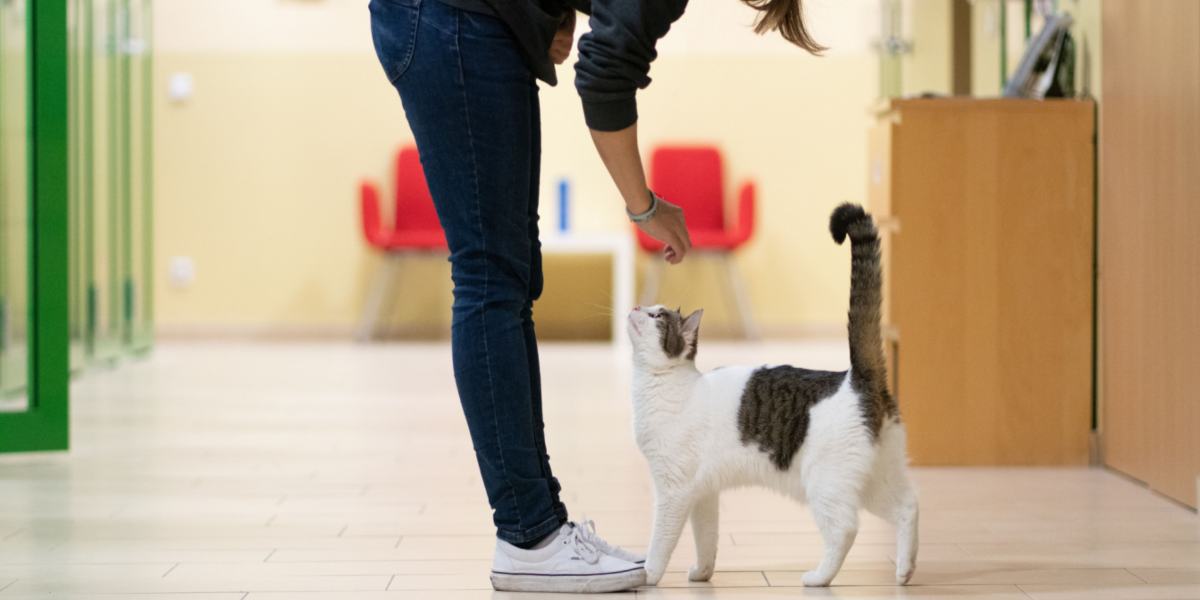
Cats offer signs that they are getting less attention than they need.
It is a given that every cat needs some dedicated attention time, even if that is just checking them from a distance for any signs of injury and putting out some kibble for semi-feral cats. However, some signs your cat is craving additional attention include:
- Following or waiting outside the door for you
- Lying over or in the way of what you are doing
- Meowing more than normal
- Nudging or pawing at you
- Destructive behavior
How Can I Help My Cat If I Am Out Of The House All Day?
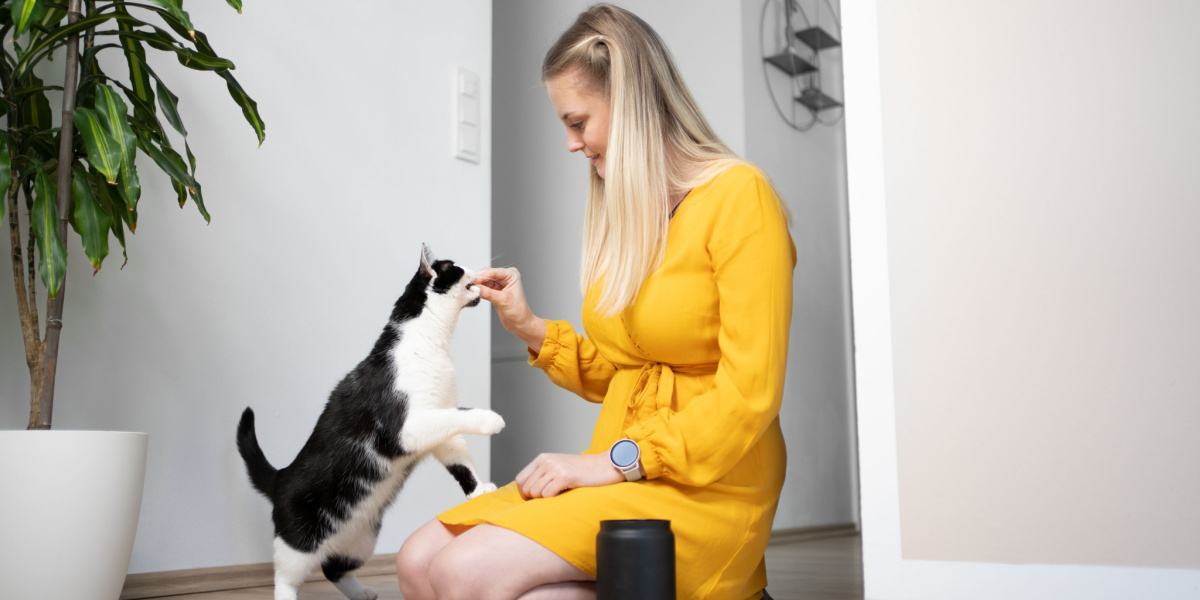
Make sure to spend plenty of time with your cat when you are home.
Many cats are at home alone all day. This is not an issue for many cats, but some will get lonely or bored. To help your cat stay happy while you’re away from home, there are several things you can do:
1. Provide Enrichment
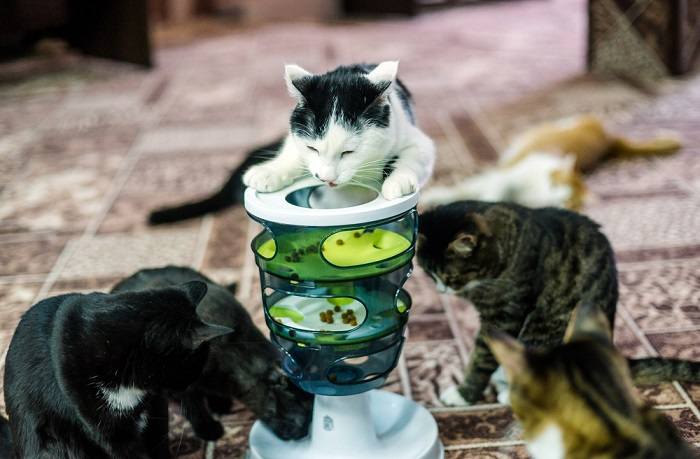
Give your cat with things to climb, scratch, and play with while you’re away from the house.
Providing interactive toys such as puzzle feeders or catnip-impregnated toys can help your cat to gain vital mental stimulation during the day. Using vertical space in your home with cat trees, a scratching post, or window platforms so they can watch the world go by can also keep your cat happy.
Also Read: The 10 Best Cat Slow Feeders & Puzzle Feeders
2. Pheromones
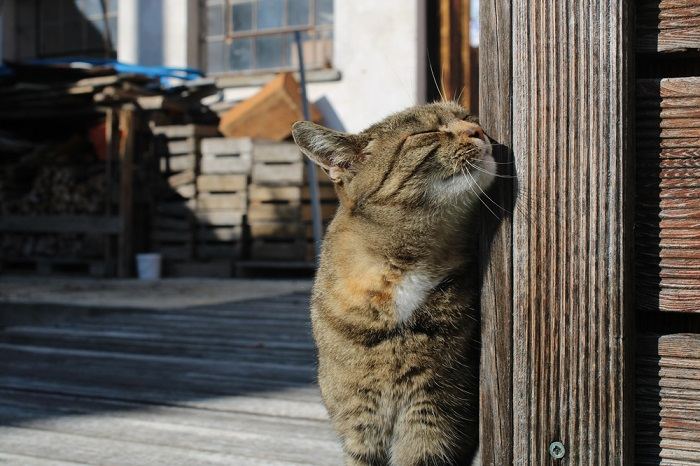
Synthetic cat pheromones can help cats feel relaxed and happy at home.
Many very effective pheromone products are on the market to help with general feline happiness. They mimic natural chemical signals to install a sense of calm and well-being in your cat. They can be especially effective for multi-cat households. Read about them here.
3. Ensure Dedicated Playtime
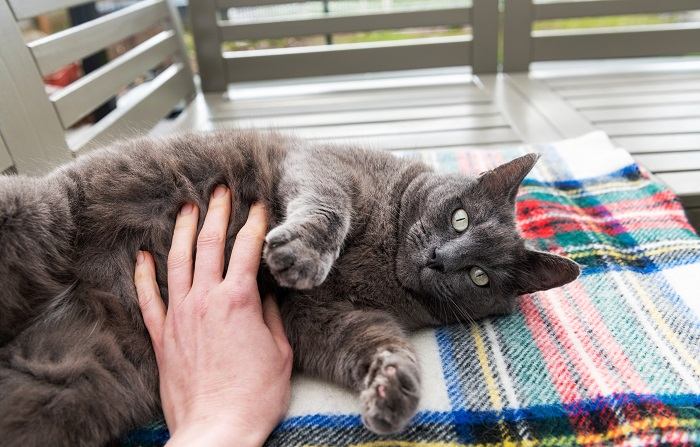
Short play sessions every day will keep your cat stimulated and strengthen your bond.
Ensuring 15 to 20 minutes every day dedicated to your kitty will do wonders for their happiness levels, provide mental stimulation, and burn off some excess energy. Be guided by what your cat wants to do at this time, be it cuddles, play or grooming. Equally, if your cat would rather sleep and not interact, that’s OK, too!
Learn what type of toys your cat likes best, be those that mimic birds or mice, for example, to get your kitty engaged in playtime.
Also Read: How To Safely Play With A Cat, According To A Cat Behaviorist
What Happens If You Don’t Give Your Cat Attention?
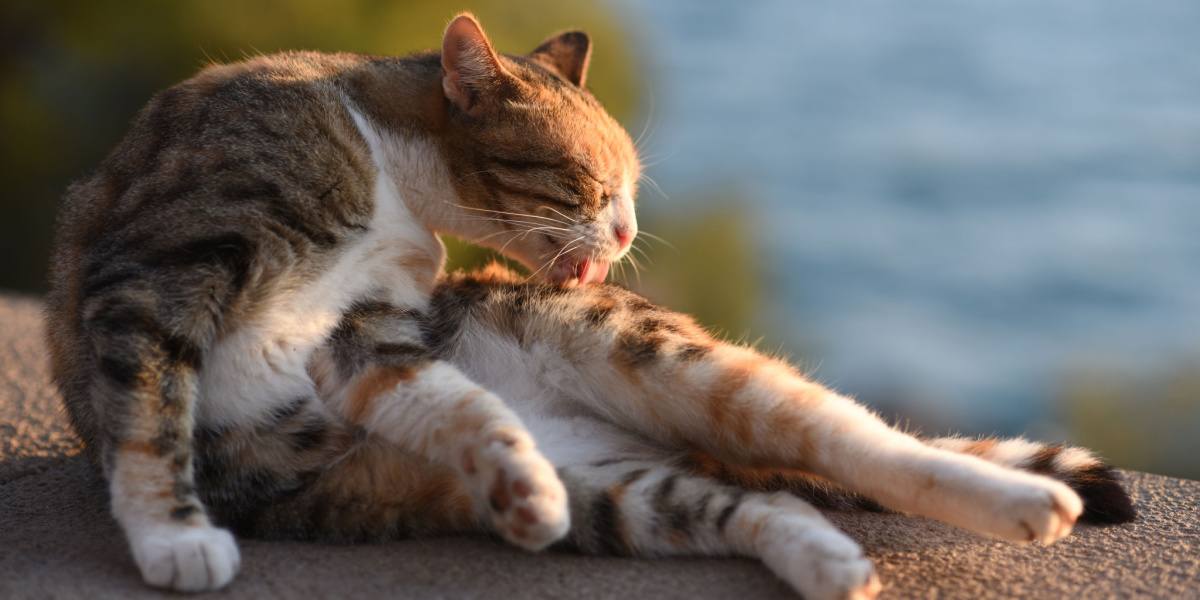
When cats are feeling lonely and stressed, they might react in negative ways.
How your cat will react to not having attention at home will be dictated by their personality and needs. A very independent cat may not mind providing you are feeding them and keeping their litter box clean. However, a cat that needs your time for mental stimulation or comfort may display symptoms related to this lack of attention. These might include showing signs of boredom, frustration, or stress, such as:
- Overgrooming or repetitive behaviors
- Overeating
- Excessive vocalization
- Destructive or aggressive behavior
- Inappropriate toileting behavior
- Increased sleeping or inactivity
Final Thoughts
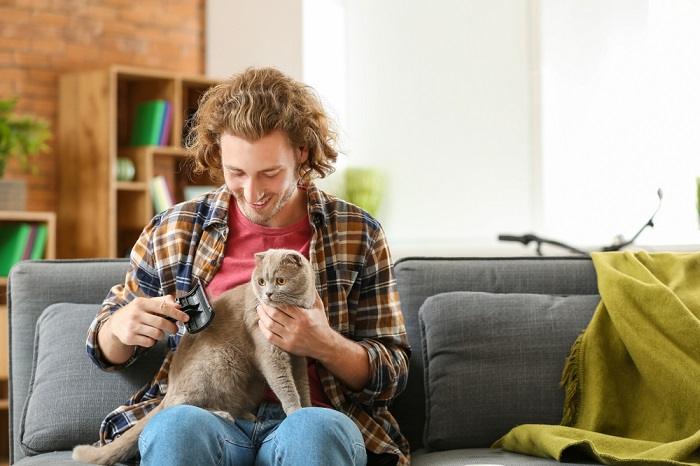
Brushing your cat provides positive attention and is also good for their skin and coat.
Every cat is an individual, and the attention a particular cat needs depends on many factors such as life stage, personality, breed, and medical needs. When it comes to how much attention to give your cat, be guided by them and never force affection, this can lead to significant stress for your cat. It is vital to carefully research everything relating to owning a cat before taking the plunge into feline ownership to ensure it is the right thing for you and your family.
If you know you’re going to undertake a significant life change that will mean less time is available for the feline family members, take proactive steps to help your cat adjust. If you have noticed a difference in your cat’s behavior or are worried your cat is unhappy at home, then speak to your veterinary care provider. They will be able to rule out any medical worries and refer you to a licensed veterinary behaviorist if appropriate.
Related Content:
- How To Stop A Cat From Peeing On The Carpet
- Why Do Cats Eat Human Hair?
- Is Cat TV Good For Cats?
- 5 Visual Signs Of A Stressed Cat And How To Help
Frequently Asked Questions
Why do cats need human attention?
Cats need human attention for several reasons, including to meet their emotional and physical needs. The attention a cat needs will be hugely impacted by things such as life stage, breed, the cat’s health status, and personality.
How do I know my cat wants attention?
Signs your cat is craving your attention include increased vocalization, following you, or even physically nudging or pawing at you. Some cats may even show signs of destructive or unwanted behavior.
What happens if my cat doesn’t get enough attention?
If a cat isn’t receiving enough attention to meet their emotional and physical needs, they might show behavioral issues due to boredom, frustration, or stress.
